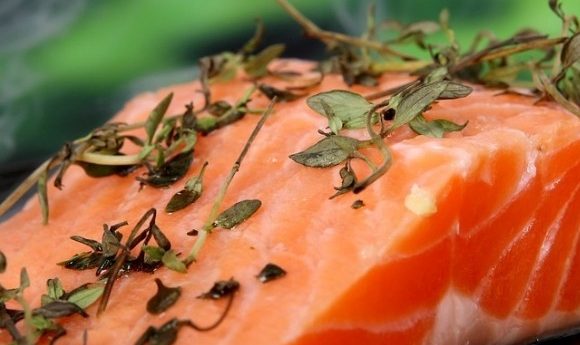Fish oils arm us against asthma

A compound often found in fish oils, n-3 PUFA, has been shown to potentially reduce the risk of having or developing asthma in a South African population, indicating a link between asthma and diet.
Recent research conducted by a team led by Andreas Lopata from James Cook University (QLD, Australia) provides evidence to support the hypothesis that a high fish diet can help defend against asthma. The study focused on the statistical impact of n-3 PUFA consumption on risk of having or developing asthma.
Asthma is more abundant today than it ever has been, and from a total affected populace of 334 million people worldwide, roughly 250,000 people still die each year as a result of the condition. With asthma medication only proving beneficial for half of the patients that live with the condition, and its prevalence ever-increasing, there has been a concerted effort to address other possible avenues of treatment.
Crudely, there has been a global move from fresh fish to fast food.”
Lopata believes that diet is potentially responsible for the rise in the condition. Explaining his hypothesis Lopata states that: “there is an increasing consumption of what is known as the n-6 Polyunsaturated Fatty Acid (PUFA) found in vegetable oils and a decline in consumption of n-3 PUFA, which is mainly found in marine oils. Crudely, there has been a global move from fresh fish to fast food.”
These n-6 PUFAs acids are considered to stimulate inflammation and potentially play a role in the development of asthma, while n-3 bears a protective effect against inflammation. To test this theory the research team studied a fishing village in South Africa where the primary employer is a fish processing factory.
The low income and high exposure to a fish rich diet meant that the populace of 642 people was likely to receive all of its n-3 PUFAs from fish and not supplements. The team’s results were striking. “We found that certain types of n-3 (from marine oils) were significantly associated with a decreased risk of having asthma or asthma-like symptoms by up to 62%, while high n-6 consumption (from vegetable oils) was associated with an increased risk by up to 67%,” declared Lopata.
Lopata promotes the consumption of fish in a healthy and balanced diet indicating that the benefits far outweigh the costs: “even if you factor in contaminants such as mercury found in some fish populations, the benefits of fish and seafood intake far more outweighs the potential risks.”
The next step for the research is to identify whether specific types of the n-3 PUFA impact asthma differently and to examine how their effects could be further optimized.





